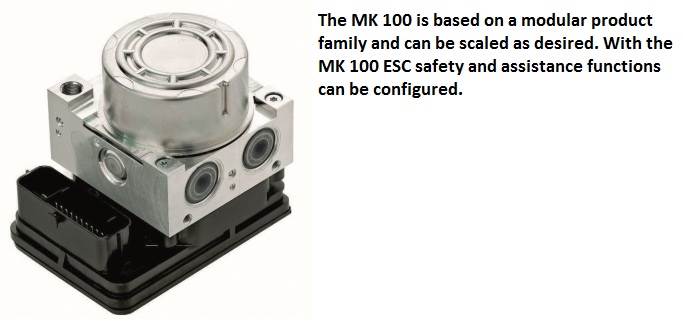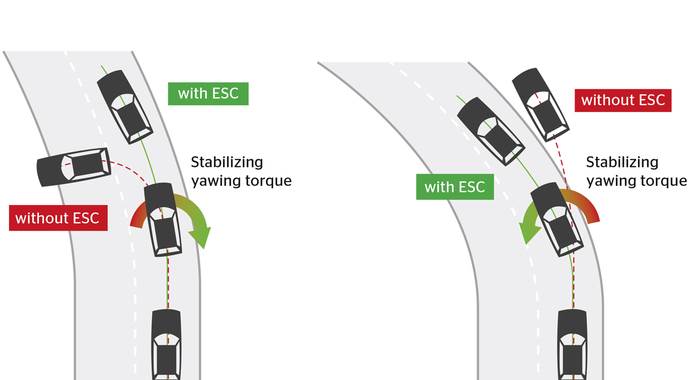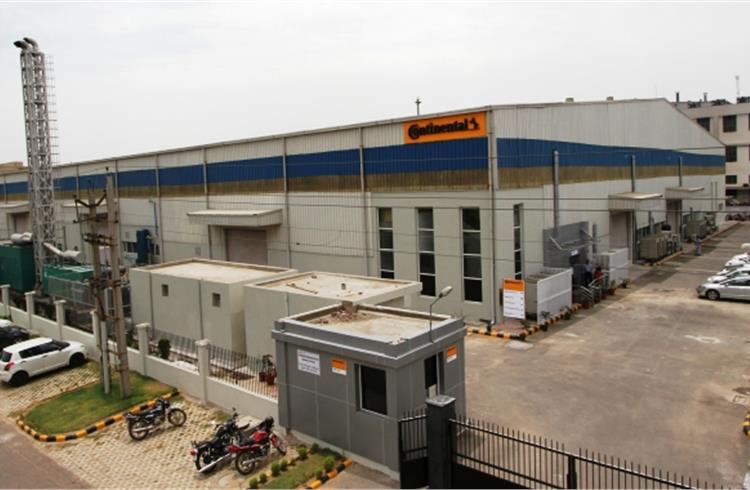Continental inaugurates ABS and ESC assembly line for passenger cars at Manesar
The plants starts production of ABS and ESC units for passenger cars on a new assembly line that has an installed production capacity of 6,00,000 units per annum.
As safety regulations tighten in India mandating the use of airbags, anti-lock braking systems and electronic stability control in vehicles, German auto component supplier Continental has decided to strengthen its chassis and safety division in India.
It inaugurated the local production of the anti-lock braking system and electronic stability control products at its existing Continental Automotive Brake Systems plant at Manesar, Haryana on November 8.
The plant starts production of ABS and ESC units for passenger cars on a new assembly line that has an installed production capacity of 6,00,000 units per annum. This will be ramped upto 1.2 million by Q2 of 2017-18.
This was disclosed by Matthias Matic executive VP BU hydraulic brake systems and member of the management board, Continental Teves AG & Co oHG after the opening of the new assembly line.
Continental is also looking at adding another assembly line for making ABS units for two-wheelers later. Both the products will primarily cater to the Indian market although ESC units will be fitted in cars that are exported from India to other markets.
In addition, the local production and start of production of the Electronic Control Unit is planned for the year 2018 at Bangalore. At present, it is imported. The company is targeting the local supply of its first localized ABS and ESC products to a leading vehicle manufacturer, by end 2016.

The MK 100 ABS Entry has been designed for the A, B and C passenger car segments in growing markets.
“The Indian market is one of the world’s largest markets for compact cars and two-wheelers. By producing these systems in the market, for the market, we are matching our portfolio to the requirements of our local customers, while keeping our technologies affordable", said Felix Bietenbeck, Head of Continental’s Business Unit Vehicle Dynamics.
The ABS maintains braking stability and steering ability while braking on all types of road surfaces. The system allows for maximum braking effect without the risk of the wheels locking up thereby improving the vehicle stability and steerability. In order to achieve this, the electronically controlled braking system captures the speed on all four wheels and calculates the optimum slip conditions by regulating the braking pressure on the individual wheel. Continental’s ABS solution is both modular and scalable and can be customized for various control strategies for both, two- and four-wheelers, according to officials.

On the other hand, the ESC supports the prevention of critical vehicle states. The system constantly evaluates the data from the wheel speed sensors, the steering angle sensor, the yaw rate and lateral acceleration sensor and compares the driver’s input with the vehicle’s actual behaviour. If an unstable state is detected, for instance as the result of a sudden direction change, ESC responds in milliseconds and stabilizes the vehicle through wheel-specific brake intervention and adjustment of the engine torque. At the same time, ESC is a prerequisite for further safety technologies like Advanced Driver Assistance Systems. Based on ESC, surrounding sensors like radar, camera and lidar technology are required for new predictive driver assistance systems which can further enhance road safety.
The MK 100 ESC to be made at Manesar is based on a modular product family and can be scaled up when required and with it, safety and assistance functions can be configured.
It is estimated that about 1.2 million people die daily worldwide on roads of which India accounts for 10 percent. Of this two-wheelers contribute for 30 percent fatalities in India.
Hence to prevent fatalities and serious injuries on Indian roads, widespread usage of ABS, airbags and ESCs in vehicles can considerably reduce their numbers.
RELATED ARTICLES
Bosch hydrogen engine tech-powered truck to be on Indian roads this year
The global supplier of technology and services is betting big on both electromobility and hydrogen. While announcing the...
IIT Bombay inaugurates Arun Firodia Research Floor
IIT Bombay, one of India’s top technical and research institutions, honours Kinetic Group chairman Dr Arun Firodia, one ...
Maruti Suzuki expands capacity at Manesar plant by additional 100,000 units
New assembly line at Plant A expands total manufacturing capacity at the Manesar plants to 900,000 units per annum. Alon...





 By Shobha Mathur
By Shobha Mathur
 09 Nov 2016
09 Nov 2016
 13041 Views
13041 Views









